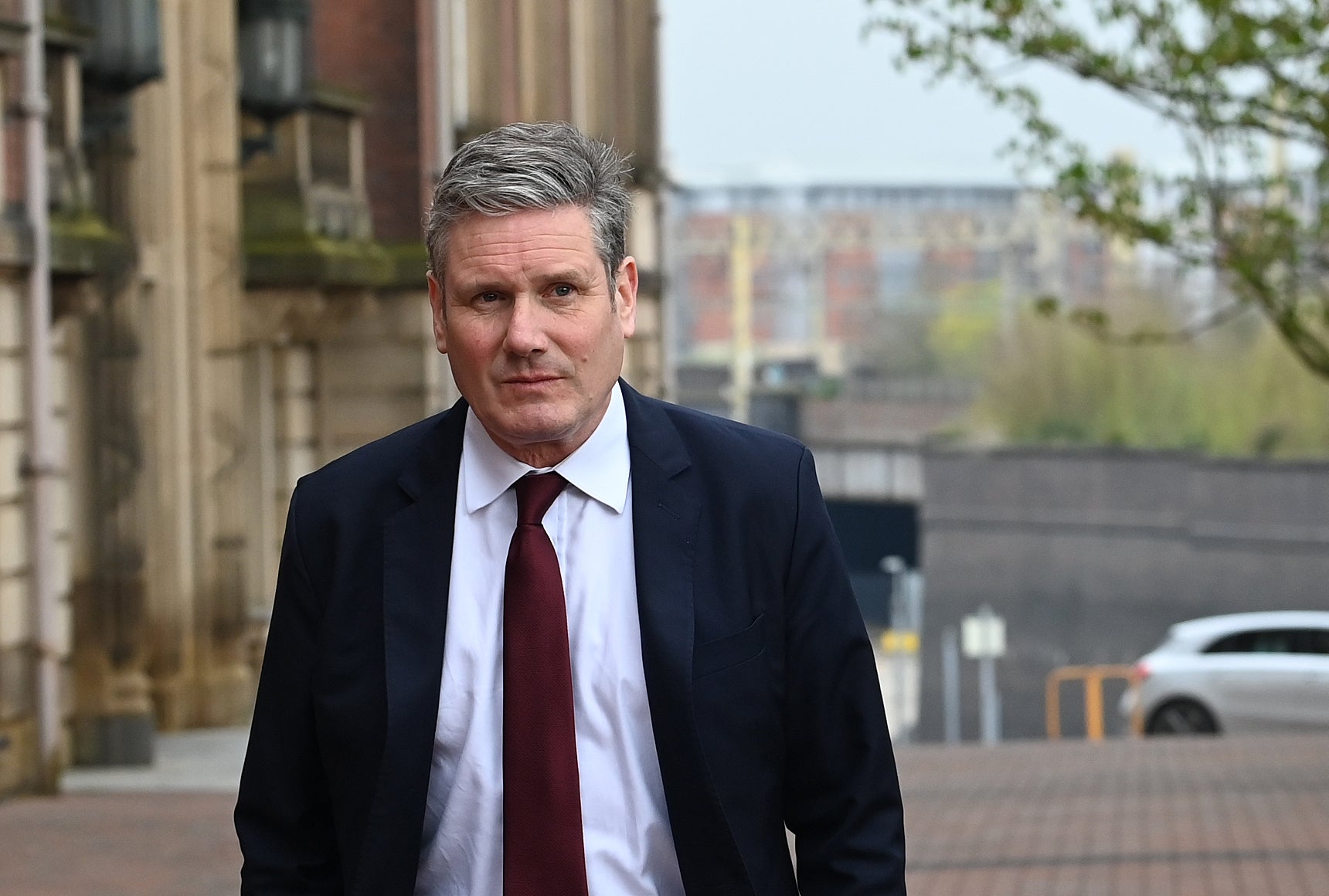I have seen a premonition of the next general election campaign – and it was depressing
Boris Johnson and Keir Starmer have gone head to head in rival interviews, writes John Rentoul, so what can we take away from them?


You know an election is in the offing when Boris Johnson agrees to go on a mass audience TV show. The prime minister was on ITV’s Good Morning Britain this morning, while Keir Starmer was on BBC’s Breakfast and Radio 4. The local elections are on Thursday, and today felt like a preview of the next general election campaign. If that is what the future holds, it was depressing.
Far from a sense of the excitement of the hustings and the thrill of democracy, we had two politicians on the defensive, looking forward to the (interim) verdict of the people with dread rather than with eager optimism. Neither dealt well with tough questions. The prime minister said more than once that the government was doing “all we can” to help people with the cost of living, which is transparently not the case.
He shifted his argument later on in the interview to saying that it wouldn’t be right in the long run to do much more, although he did say that “there is more that we can do”, which suggests another aid package will be on its way from HM Treasury. However, it will be delayed for as long as possible – that is, the chancellor doesn’t want to be forced into another mini-Budget this summer, but would rather deal with it in the actual Budget in the autumn, not least because that would be closer to the general election.
Rather bravely for a politician in an election campaign, though, Johnson kept trying to point out that any further help for people such as Elsie, the pensioner cited by presenter Susanna Reid, would have to come from taxpayers generally. He even suggested that higher spending on benefits would drive up inflation and therefore interest rates and people’s mortgage payments. That is a trade-off that Conservatives are usually shy about defending, but at least he accepted that politics is about hard choices.
Starmer, on the other hand, tied himself in knots by pretending that all bad things could be ameliorated at no cost, although mainly by not starting from here. The reason the government was putting up taxes, he said, was not because the NHS and social care needed more money, but because of low growth. When Martha Kearney, the Today programme presenter, said he could hope for higher growth but he couldn’t count on it, he said he would go after coronavirus fraud more aggressively. Only after that was he finally driven to saying he would raise more money for the NHS by having a “fair tax system” that would “look across the board” at “stocks and shares and dividends” – knowing full well that Rishi Sunak is already increasing corporation tax and dividend tax.
He continued to attack the rise in national insurance rates as the “wrong tax at the wrong time” even though Kearney reminded him that the higher thresholds announced in the spring statement would mean those earning less than £35,000 a year – that is, most workers – would be better off from July. Overall taxes are still going up, but Labour’s focus on national insurance, which is going down in two months’ time, is a distraction.
To keep up to speed with all the latest opinions and comment, sign up to our free weekly Voices Dispatches newsletter by clicking here
Surprisingly, perhaps, it was Johnson, who was asked “Are you in touch?”, who appeared to be. “The cost of chickens is crazy,” he said. Starmer’s dull politician-speak about the “cost of living crisis”, on the other hand, failed to cut through, and yet it was the prime minister who was aggressively confronted with two case studies of heart-rending hardship.
Johnson foolishly responded to Elsie’s story of spending the day on the bus to keep warm by saying he had introduced the 24-hour freedom pass as mayor of London (he was mocked online because the freedom pass was introduced by the GLC in 1973, but he made it all hours). Yet he came across as energetic, engaged and determined, whereas Starmer was hesitant, evasive and prickly.
In particular, the Labour leader fumbled the question about whether the Durham constabulary had been back in touch with his office about his allegedly breaking lockdown laws in the local election campaign last year. He conspicuously failed to answer a direct question four times, although his spokesperson (masquerading as “a Labour insider”) said later: “I would just refer you to Durham Police’s statement that they haven’t reopened the investigation, so self-evidently they haven’t been in touch.”
I suspect that Starmer didn’t want to say “no” in case the police had been in touch and he didn’t know about it, in which case a normal thing to say would be: “Not as far as I know but I’ll check and get back to you.” Instead, he gave the Conservative mud-slinging campaign another lease of life.
If this is what the next general election is going to be like, it is not going to be pretty, and I wouldn’t write Boris Johnson off.



Join our commenting forum
Join thought-provoking conversations, follow other Independent readers and see their replies
Comments